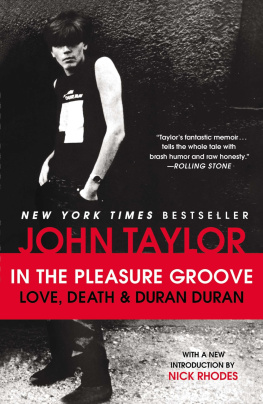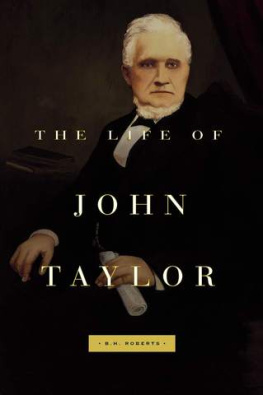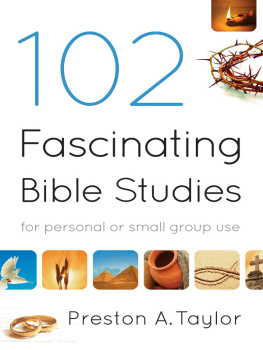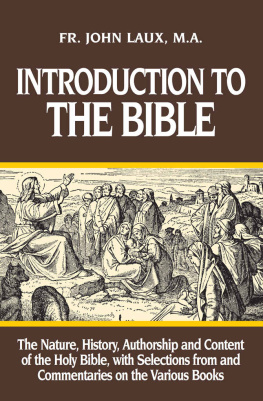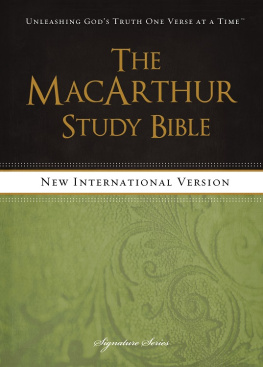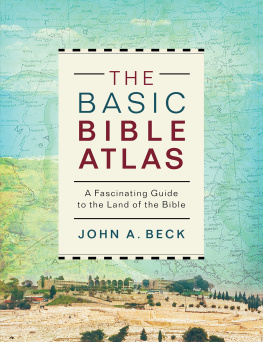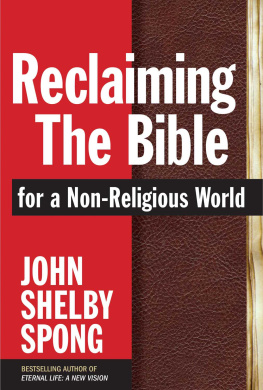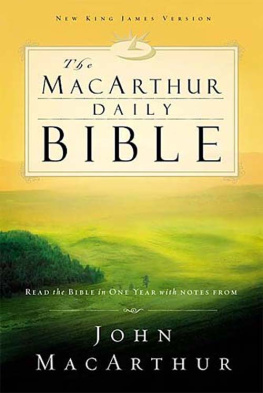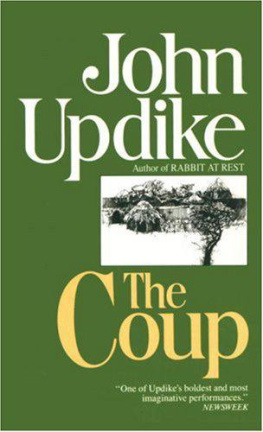Taylor John - Classics and the Bible
Here you can read online Taylor John - Classics and the Bible full text of the book (entire story) in english for free. Download pdf and epub, get meaning, cover and reviews about this ebook. year: 2007, publisher: Bloomsbury Publishing Plc, genre: Detective and thriller. Description of the work, (preface) as well as reviews are available. Best literature library LitArk.com created for fans of good reading and offers a wide selection of genres:
Romance novel
Science fiction
Adventure
Detective
Science
History
Home and family
Prose
Art
Politics
Computer
Non-fiction
Religion
Business
Children
Humor
Choose a favorite category and find really read worthwhile books. Enjoy immersion in the world of imagination, feel the emotions of the characters or learn something new for yourself, make an fascinating discovery.

- Book:Classics and the Bible
- Author:
- Publisher:Bloomsbury Publishing Plc
- Genre:
- Year:2007
- Rating:3 / 5
- Favourites:Add to favourites
- Your mark:
- 60
- 1
- 2
- 3
- 4
- 5
Classics and the Bible: summary, description and annotation
We offer to read an annotation, description, summary or preface (depends on what the author of the book "Classics and the Bible" wrote himself). If you haven't found the necessary information about the book — write in the comments, we will try to find it.
Classics and the Bible — read online for free the complete book (whole text) full work
Below is the text of the book, divided by pages. System saving the place of the last page read, allows you to conveniently read the book "Classics and the Bible" online for free, without having to search again every time where you left off. Put a bookmark, and you can go to the page where you finished reading at any time.
Font size:
Interval:
Bookmark:
Classical Literature and Society
Series Editor: David Taylor
Classics and the Bible: Hospitality and Recognition
John Taylor
Culture and Philosophy in the Age of Plotinus
Mark Edwards
Homer: The Resonance of Epic
Barbara Graziosi & Johannes Haubold
Ovid and His Love Poetry
Rebecca Armstrong
Pastoral Inscriptions:
Reading and Writing Virgils Eclogues
Brian Breed
Pausanias: Travel Writing in Ancient Greece
Maria Pretzler
Silent Eloquence: Lucian and Pantomime Dancing
Ismene Lada-Richards
Thucydides and the Shaping of History
Emily Greenwood

For Martin and Jane Hammond
The aim of this series is to consider Greek and Roman literature primarily in relation to genre and theme. Its authors hope to break new ground in doing so but with no intention of dismissing current interpretation where this is sound; they will be more concerned to engage closely with text, subtext and context. The series therefore adopts a homologous approach in looking at classical writers, one of whose major achievements was the fashioning of distinct modes of thought and utterance in poetry and prose. This led them to create a number of literary genres evolving their own particular forms, conventions and rules genres which live on today in contemporary culture.
Although studied within a literary tradition, these writers are also considered within their social and historical context, and the themes they explore are often both highly specific to that context and yet universal and everlasting. The ideas they conceive and formulate and the issues they debate find expression in a particular language, Latin or Greek, and belong to their particular era in the classical past. But they are also fully translatable into a form that is accessible as well as intelligible to those living in later centuries, in their own vernacular. Hence all quoted passages are rendered into clear, modern English.
These are books, then, which are equally for readers with or without knowledge of the Greek and Latin languages and with or without an acquaintance with the civilisation of the ancient world. They have plenty to offer the classical scholar, and are ideally suited to students reading for a degree in classical subjects. Yet they will interest too those studying European and contemporary literature, history and culture who wish to discover the roots and springs of our classical inheritance.
The series owes a special indebtedness and thanks to Pat Easterling, who from the start was a constant source of advice and encouragement. Others whose help has been invaluable are Robin Osborne who, if ever we were at a loss to think of an author for a particular topic, almost always came up with a suitable name or two and was never stinting of his time or opinion, and Tony Woodman, now at Virginia. The unfailing assistance of the late John W. Roberts, editor of the Oxford Dictionary of the Classical World, is also gratefully acknowledged. Deborah Blake, Duckworths indefatigable Editorial Director, has throughout offered full support, boundless enthusiasm and wise advice.
Finally, I pay tribute to the inspirational genius which Michael Gunningham, fons et origo of the series and an editor of consummate skill and phenomenal energy, brought to the enterprise. His imprint is everywhere: sine quo, non.
David Taylor
This is an amateur sketch of a big subject. In reading and teaching Greek and Latin literature I am constantly struck by biblical parallels. These have received surprisingly little attention in recent times, though a glance at the history of art (or at Milton) shows that acknowledgement of affinity was once usual. Classical literature and the Bible are nowadays conventionally studied in separate compartments, but this is a curious and constricting orthodoxy. The time span of the two sets of texts is roughly the same, beginning in perhaps the eighth century BC (though incorporating earlier material) and extending for about a thousand years. Both are products of a Mediterranean world influenced by older cultures of the Near East. Resemblance between stories can sometimes be explained by a common source, but my concern here is with analogy rather than genealogy. The Trojan War has a role in classical literature comparable to that of the Exodus in the Bible as an endlessly rich source of reference and allusion. Authors in both traditions are concerned with a heroic past and its bearing on the present, and they rewrite earlier texts because they see earlier events re-enacted. In Virgil and in the New Testament alike we find (within a century or so, spanning the turn of the era) a particularly influential reworking, a radical re-appropriation of a revered past. Styles of interpretation and criticism have often been closely parallel. We depend still on the results of nineteenth-century analytical scholarship, yet its practitioners often murdered to dissect. Both classicists and biblical critics are now typically more concerned with what happens in front of a text (reception history and reader response) than with trying to peer behind it. A new humility assumes, in the absence of compelling contrary evidence, that texts have the form their authors planned, so that (for example) an apparently abrupt and unresolved ending is read as an effect deliberately created.
I offer a series of connected essays. The first three chapters consider the subject from the classical side: Homer, the literature of classical Athens, and Virgil; the fourth turns to the New Testament; and the fifth more briefly to aspects of later reception. The themes of hospitality and recognition (often in combination) provide an extended test case for comparison of the two traditions. I hope to show that they are important in both, but they are intended also as metaphors about the relation between the two sets of texts and our perception of it.
Experience of discussing the subjects treated here suggests I should forestall two misconceptions. This is not a quest for what Simone Weil called intimations of Christianity in classical authors. Conversely, however, I hope that the juxtaposition of scriptural and pagan texts will not seem inappropriately reductionist. The theologian David Brown in his acclaimed Tradition and Imagination observes the paradox that an ecumenical age open to revelatory insight from other world religions implicitly denies it to the classical past: studies both in comparative religion and in comparative literature flourish, but this most obvious comparison is neglected. We now generally accept that texts can be read in a variety of ways, and this acceptance I hope may extend to respect for different understandings of inspiration (a concept whose history shows how closely theology and literary criticism are intertwined). Except perhaps on the most narrowly fundamentalist view, books of the Old and New Testaments are the work of ancient human hands and can be approached as such, irrespective of the further status that may be attributed to them by confessional allegiance.
This is a book about reading, and I hope also an invitation to read. The Bible and classical literature long enjoyed a joint hegemony in our culture, but both are now much less widely known than they once were. An attempt to read the Bible all through is liable to founder somewhere in the middle of Leviticus. Help is at hand in two recent books with telling titles. John Dancy in The Divine Drama
Next pageFont size:
Interval:
Bookmark:
Similar books «Classics and the Bible»
Look at similar books to Classics and the Bible. We have selected literature similar in name and meaning in the hope of providing readers with more options to find new, interesting, not yet read works.
Discussion, reviews of the book Classics and the Bible and just readers' own opinions. Leave your comments, write what you think about the work, its meaning or the main characters. Specify what exactly you liked and what you didn't like, and why you think so.

